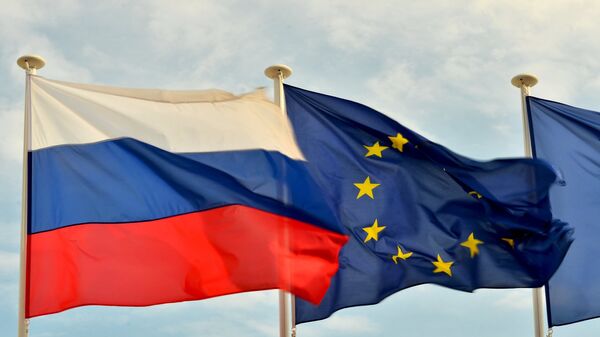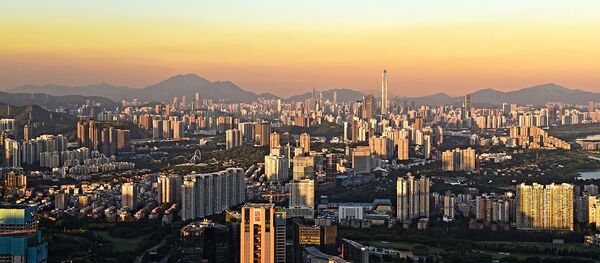"This would be a perfect opportunity. There is already a joint working group of the Eurasian Economic Union [EAEU] and the European Union, but it doesn't hold conferences. It is necessary for it to start convening so that we can promote these things as soon as possible," European Chambers of Commerce and Industry President Christoph Leitl said when asked whether the creation of a free trade zone between Russia and Europe was possible.
READ MORE: Russia Blocks EU's Request to Establish WTO Arbitration Panel on Pork Dispute
He added that the Eurochambers favored free trade with every part of the world believing that existing political differences should be gradually settled.
In addition, the official noted that the EU sanctions against Russia and Moscow's responsive measures damaged both sides.
"I've been saying from the very beginning that these sanctions do great damage to both sides. Europe has suffered as well. It is difficult to estimate the damage, even approximately. But I know that many of those who used to export agriculture products to Russia can't do it anymore. And, vice versa, Western financial markets are closed for Russia. We should be against it, the sensible forces should gain the upper hand," Leitl said.
He went on to say that the development of the Russian-EU economic cooperation could contribute to normalization of the Moscow-Brussels dialogue.
"The economy can always build bridges, as the economy unites people. Those who are engaged in trade don't have a militant or a hostile attitude, they have a friendly attitude — all those interested in joint investment and innovative projects. This is always something positive. And this is the contribution that the economy makes to reducing political problems and solving them someday," Leitl said.
He also noted that he regarded Russia as a very important EU partner and therefore advocated understanding of Russian history and culture, and the current situation in the country.
In November 2017, a working group for the creation of a common economic space from Lisbon to Vladivostok was formed in Berlin. The group's mission is to promote economic cooperation between all members of the European Union and the EAEU.
According to the European Commission's estimates, Russia is European Union's fourth largest trading partner, while the European Union is Russia's largest trading partner, although their trade decreased when Moscow joined the World Trade Organization in 2012.



